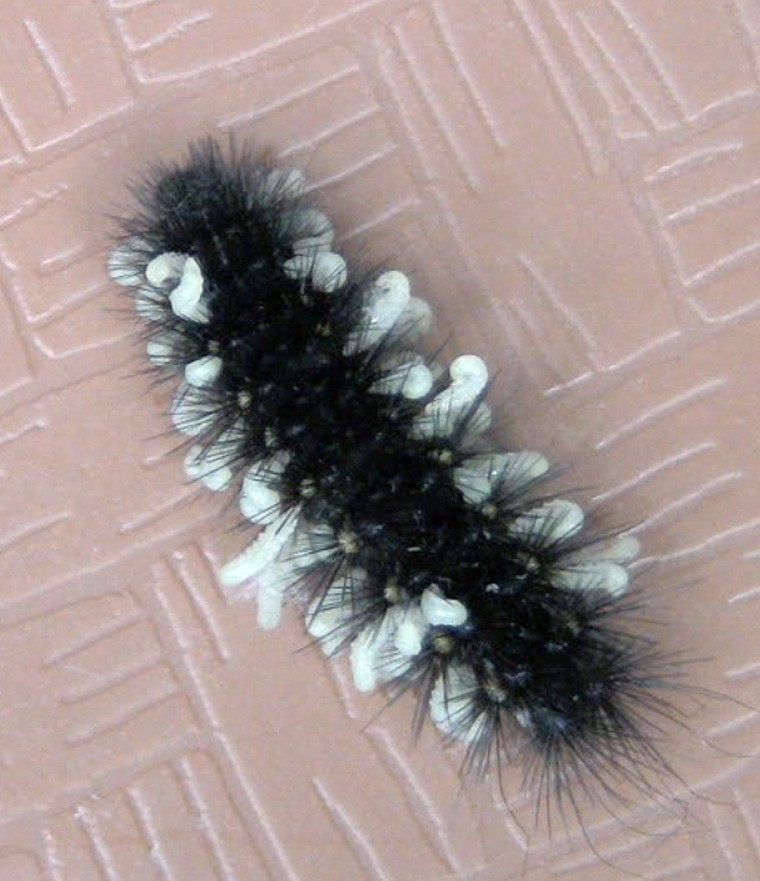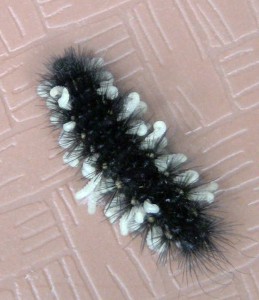Biology PhD Student Bernardo Finds Parasitoids Alter Diets of Hosts


“As far as relationships go, parasitism may seem particularly selfish: one partner benefits at the expense of another. Many parasites even alter the behavior of their hosts to get what they need. Parasitoids are similar, but they usually spend a significant portion of their lives living inside or on their hosts’ bodies and controlling them from the inside-out, before ultimately killing and often consuming them.”
So begins an article in Science Daily featuring research by Melissa Bernardo, a PhD student in biology working with Michael Singer, associate professor of biology, associate professor of environmental studies. Bernardo has been studying how parasites and parasitoids influence feeding behavior of their hosts. Many scientists believe diet manipulation “could be reasonable because the parasite might need different types of nutrients than the host,” according to the article. But this phenomenon has been studied little in the past, and hasn’t been shown conclusively.
In a series of experiments, Bernardo found that when wooly bear caterpillars were allowed to choose between a protein- or carbohydrate-rich diet, those who were unparasitized chose a protein diet, while those parasitized by a type of wasp preferred a carbohydrate diet. In effect, Bernardo said, “The wasps are making their hosts carb-load.”
The article continues
But why? It turns out that when caterpillars eat more carbs, the wasp larvae that chew their way out of the caterpillar’s carcass are bigger. Bernardo explains, “when these parasitoids are older larvae living in the host, they switch from feeding on host blood to feeding on specific host tissue.” This tissue is rich in lipids, which wasps can’t make, so they get the lipids from their hosts when they are larvae. By making the caterpillars eat more carbs, the wasps cause more lipids to accumulate in the caterpillars, leading to bigger wasps.
In case you’re thinking this sort of host manipulation is confined to distantly related insects, think again. Some evidence suggests that humans with Toxoplasma gondii infections show risky, self-destructive behaviors and may even be more prone to schizophrenia. In its natural system, rats infected with Toxoplasma are less afraid of cats, which facilitates the parasite passing into a cat host. Bernardo is more interested in how human parasites and gut microbes might influence diet. “There are hypotheses out there that predict that our feeding behavior would be altered depending not only on the parasites in our gut, but our gut microbiome in general,” she says.

